Explore
OUR OFFER
The rich offer of our Kindergarten makes it time
that the child spends with us is a time of learning and playing that is a combination of investment in development and pure joy of childhood.
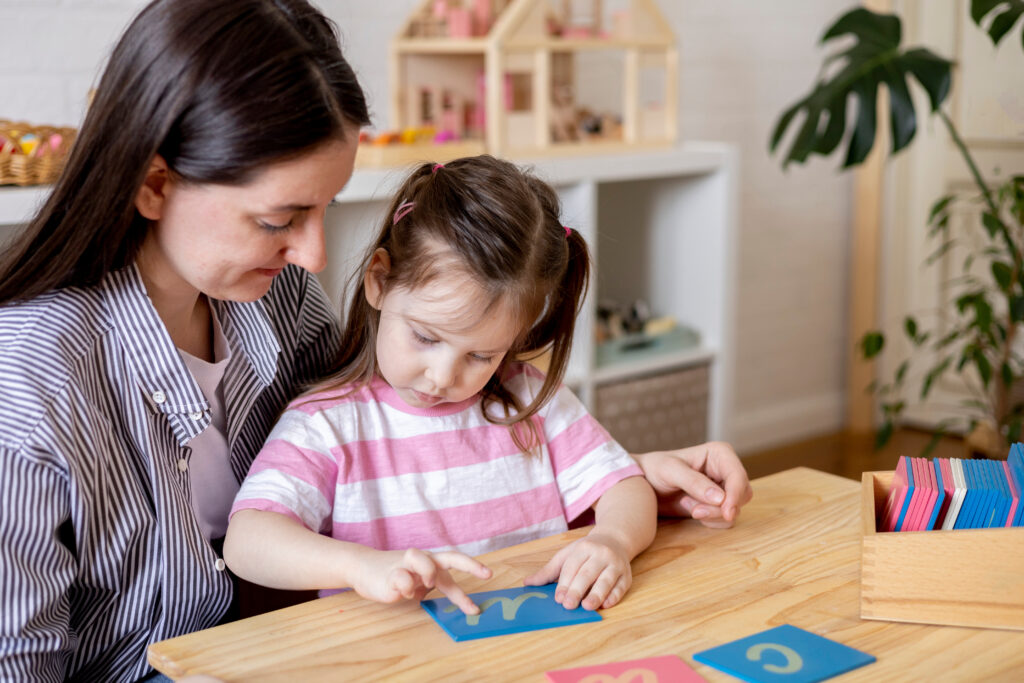
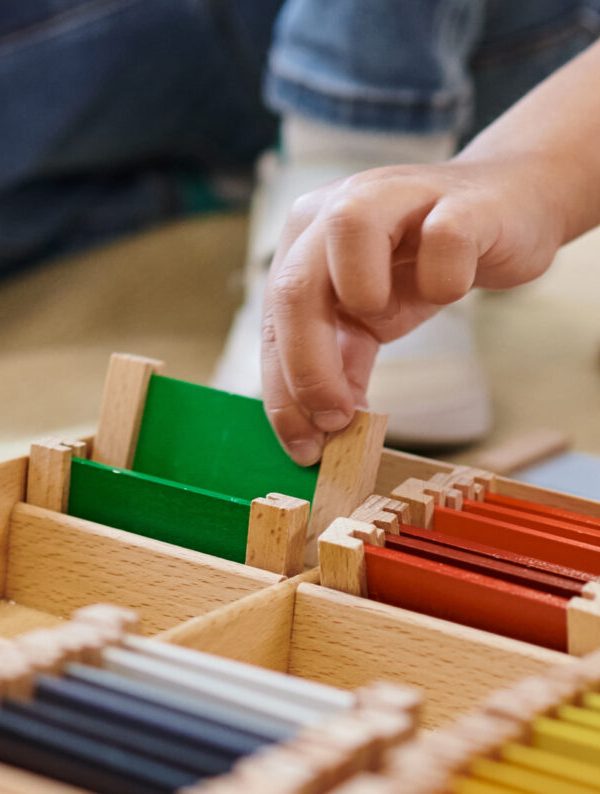
mission
KINDERGARTEN
Our main goal is to educate an independent person, believing in his own strength, independent in thinking and acting. Together with you, we prepare children for a life full of joy and success.
Principles of work of our kindergarten:
-mixed age groups - older Children learn to take care of younger ones, the younger ones learn by observing the older ones
-an individual approach to each child - creating optimal conditions for the development of character traits and abilities
-developing the child's independence - from the first days of the stay in kindergarten, e.g. until lunch.The children set the tables by themselves and clean up after themselves
- specific forms of work: own work, free choice of material, workplaces, work pace, concentration exercises, lessons of silence, peaceful problem solving
- Children learn to name and express emotions, to interact with others
- learning mutual help, not selfish competition
- learning respect for oneself and others, taking care of one's own things, kindergarten and others
- comprehensive support for the harmonious development of the child through the cooperation of teachers with specialists: speech therapist, psychologist, educator, pediatrician, physiotherapist, proposal of joint activities integrating children and parents (joint performances, picnics, family days)
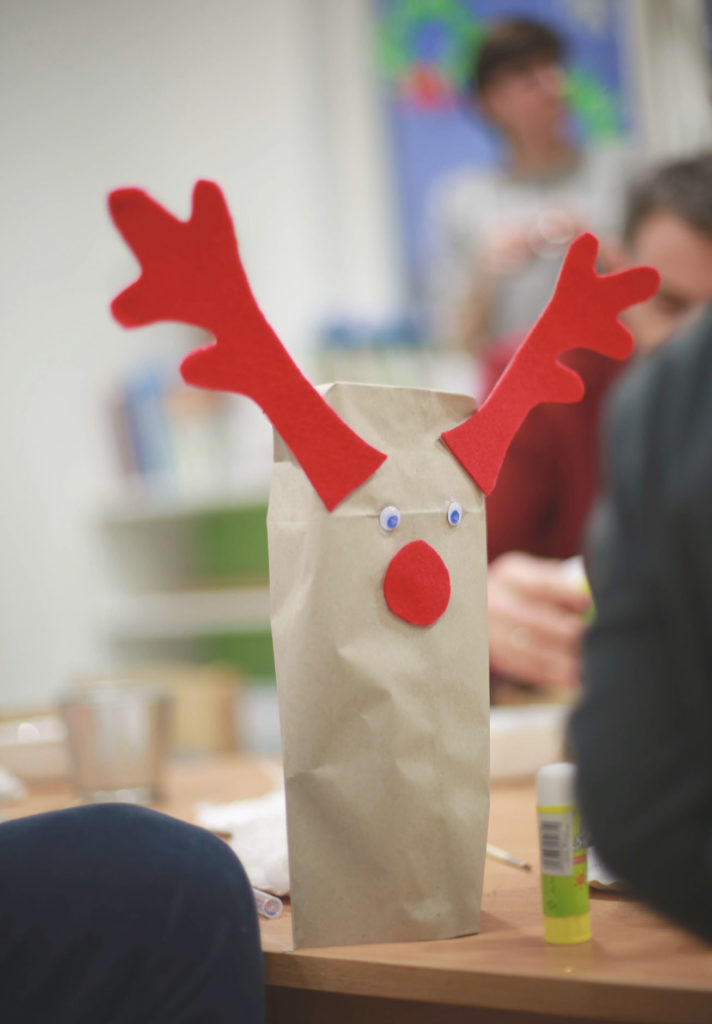
CYCLICAL EVENTS
As part of the educational activities, events and cyclical events are planned for the school year.
CAREERS PRE-ORIENTATION
Once a month the kindergarten was visited by representatives of a selected profession, presenting to the children their job.
TRAVEL EVENT
Cyclical events that take place in our kindergarten. During them travelers, enthusiasts of other cultures tell children about other countries, different customs, traditions. They also present objects, instruments and costumes related to other cultures.
SCHOOL TRIPS
We organize at least 4 trips a year. They are: museum tour, theater performances, outdoor event, trip to an agritourism farm, trip to a restaurant.
OCCASIONAL EVENTS
In reference to the calendar holidays during the year, we organize events for children and their parents. It is a great opportunity to spend time with Your children and get to know other children and parents better.
DAY SCHEDULE
The daily schedule is adjusted to the developmental needs of Children aged 2.5 - 6 years
Depending on the specificity of the group and the needs of the children, the daily schedule may slightly differ from the one presented.
7:30 – 8:30
8:30 – 11:00
11:00 – 11:30
11:30 – 12:30
12:30 – 13:15
13:15 – 13:30
13:30 – 14:00
15:45 – 17:30
14:00 – 15:45
Morning classes. The children go to kindergarten. It is a time to nurture flowers, feed pre-school animals and be free in the surroundings. Teachers talk with the children. Children interact with each other and greet each other calmly
My first own work with Montessori Material. This is the time when Children work with Montessori material in a specially prepared environment, i.e. in corners with material from a given department, freely choosing the time and place of work, as well as the form. They learn and acquire new competences in accordance with their interests. Each child may work with a teacher or with another child, in a small group or alone. The teachers instruct the children how to work with the given material and observe their interests, building individual development plans.
At the same time, children prepare and eat breakfast. Each classroom has a designated place to eat breakfast and afternoon tea (breakfast table). Children are independent and can eat when they are hungry, they can eat as much as they need, and they can eat a meal more than once if they feel hungry.
The first didactic classes in the circle. This is the time when the Children have the opportunity to meet in a group. Educational activities are conducted by a teacher for the whole group and presented in the most interesting way for the children using many aids and accessories, in accordance with the core curriculum for preschool education and the didactic plan prepared by the group educators. During this time, the children have a silence lesson and sing songs. It is also a time when Children learn to decide on matters important for the group, take up new, difficult topics, talk about rules, and resolve conflicts.
Stay in the open air. Walking together in the neighborhood or playing in the garden and on the playground in case of smog or bad weather: group games and activities organized by the teacher (art, music, movement, speech therapy).
Dinner together. Each child eats as much as he needs. After dinner, the children clean up after themselves.
Relaxation. Rest or nap, reading and watching books, listening to music. Free time to develop the individual interests.
The second didactic activities in the circle. This is the time when the children have the opportunity to meet in a group.
Second own work with Montessori Material. Individual and group lessons organized by the teacher.
Afternoon tea is served after 15:00. Children individually decide on the time of its consumption.
Own time. Children are slowly being picked up by their parents. Continuation of didactic and educational work. Organized activities: art, music, movement, speech therapy and games according to children's invention: didactic games,
Dzieci łączą się w oddział zbiorczy i przebywają w jednej sali w godzinach 7:30-8:00 i 17:00-17:30.
Classes resulting from the implementation of the core curriculum of the Ministry of National Education:
– język angielski z lektorem: dwa razy w tygodniu
– rytmika z muzykologiem: raz w tygodniu
– wychowanie fizyczne: raz w tygodniu
Ponadto przedszkole prowadzi nieodpłatne zajęcia logoterapii grupowej i przeprowadza indywidualne diagnozy logopedyczne. Przedszkole umożliwia konsultacje z psychologiem. Dzieci ze wspomaganiem rozwoju lub indywidualnym planem edukacyjno-terapeutycznym w zależności od potrzeb uczestniczą w nieodpłatnych zajęciach logopedycznych, psychologicznych i terapeutycznych dla dzieci, m.in. Terapii Umiejętności Społecznych.
Wyżej wymienione zajęcia odbywają się w ustalonych, różnych dniach tygodnia o stałych porach w godzinach pracy własnej.
DAY SCHEDULE
Plan dnia jest dostosowany do potrzeb rozwojowych Dzieci w wieku 3,5 – 6 lat.
7:30-8:30
Morning classes. The children go to kindergarten. It is a time to nurture flowers, feed pre-school animals and be free in the surroundings. Teachers talk with the children. Children interact with each other and greet each other calmly
8:30–11:00
My first own work with Montessori Material. This is the time when Children work with Montessori material in a specially prepared environment, i.e. in corners with material from a given department, freely choosing the time and place of work, as well as the form. They learn and acquire new competences in accordance with their interests. Each child may work with a teacher or with another child, in a small group or alone. The teachers instruct the children how to work with the given material and observe their interests, building individual development plans.
At the same time, children prepare and eat breakfast. Each classroom has a designated place to eat breakfast and afternoon tea (breakfast table). Children are independent and can eat when they are hungry, they can eat as much as they need, and they can eat a meal more than once if they feel hungry.
11:00-11:30
The first didactic classes in the circle. This is the time when the Children have the opportunity to meet in a group. Educational activities are conducted by a teacher for the whole group and presented in the most interesting way for the children using many aids and accessories, in accordance with the core curriculum for preschool education and the didactic plan prepared by the group educators. During this time, the children have a silence lesson and sing songs. It is also a time when Children learn to decide on matters important for the group, take up new, difficult topics, talk about rules, and resolve conflicts.
11:30-12:30
Stay in the open air. Walking together in the neighborhood or playing in the garden and on the playground in case of smog or bad weather: group games and activities organized by the teacher (art, music, movement, speech therapy).
12:30-13:15
Dinner together. Each child eats as much as he needs. After dinner, the children clean up after themselves.
13:15-13:30
Relaxation. Rest or nap, reading and watching books, listening to music. Free time to develop the individual interests.
13:30–14:00
The second didactic activities in the circle. This is the time when the children have the opportunity to meet in a group.
14:00–15:45
Druga praca własna z Materiałem Montessori. Zajęcia indywidualne i grupowe organizowane przez nauczyciela. Po godzinie 15:00 wydawany jest podwieczorek. Dzieci indywidualnie decydują o porze jego konsumpcji.
15:45–17:30
Own time. Children are slowly being picked up by their parents. Continuation of didactic and educational work. Organized activities: art, music, movement, speech therapy and games according to children's invention: didactic games,
Children form one group in hours 7:30-8:00 i 17:00-17:30
Classes resulting from the implementation of the core curriculum of the Ministry of National Education:
English with a teacher: twice a week during own work hours
Rhythmics with a musicologist: once a week during own work hours
Physical education: once a week during own work hours
Art classes are held once a week during own working hours
Group and individual (Children with development support or an individual educational and therapeutic plan) speech therapy classes,
psychological and therapeutic services are held regularly during own working hours, as part of screening and when necessary.
After kindergarten
After kindergarten lessons are optional their cost is around 20-40 pln/h

CERAMICS
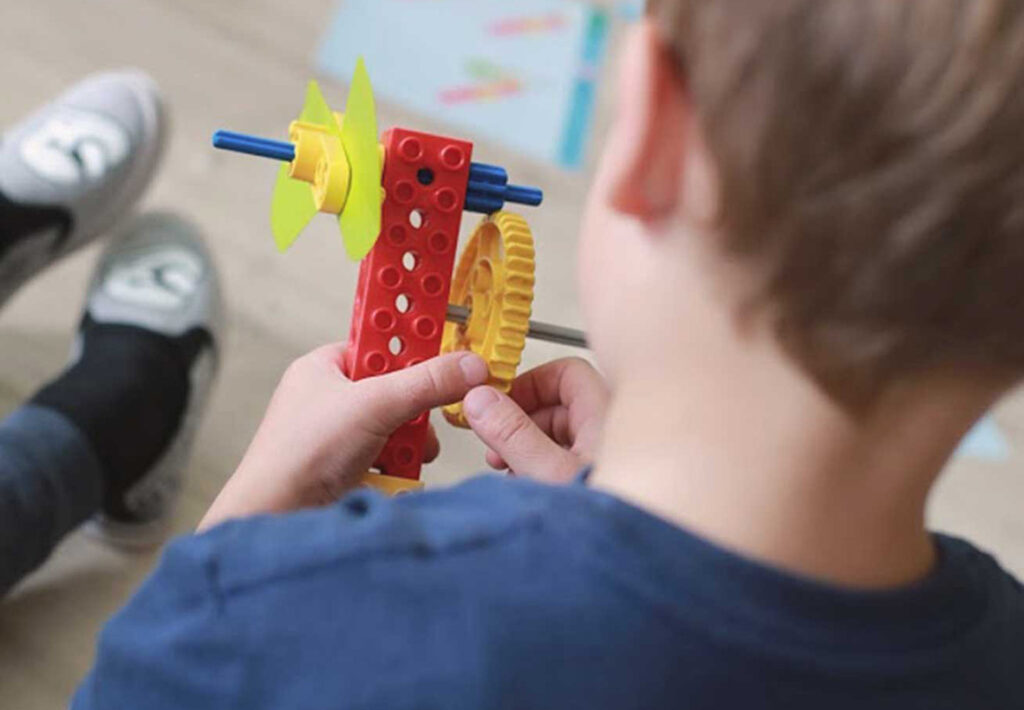
ENGINEER ACADEMY WITH LEGO
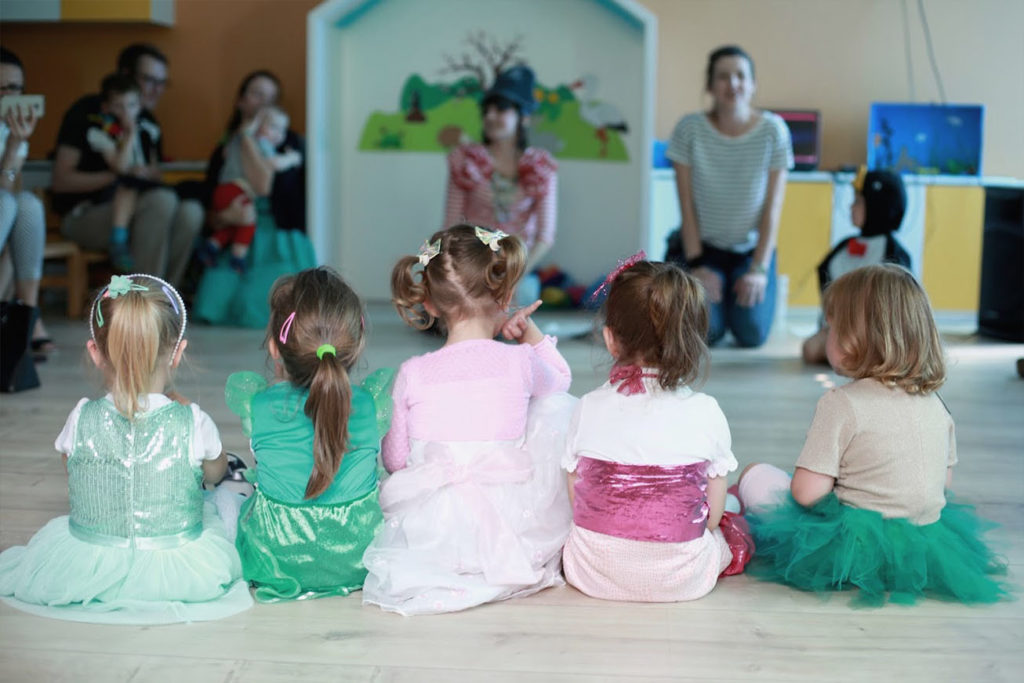
DANCE LESSONS
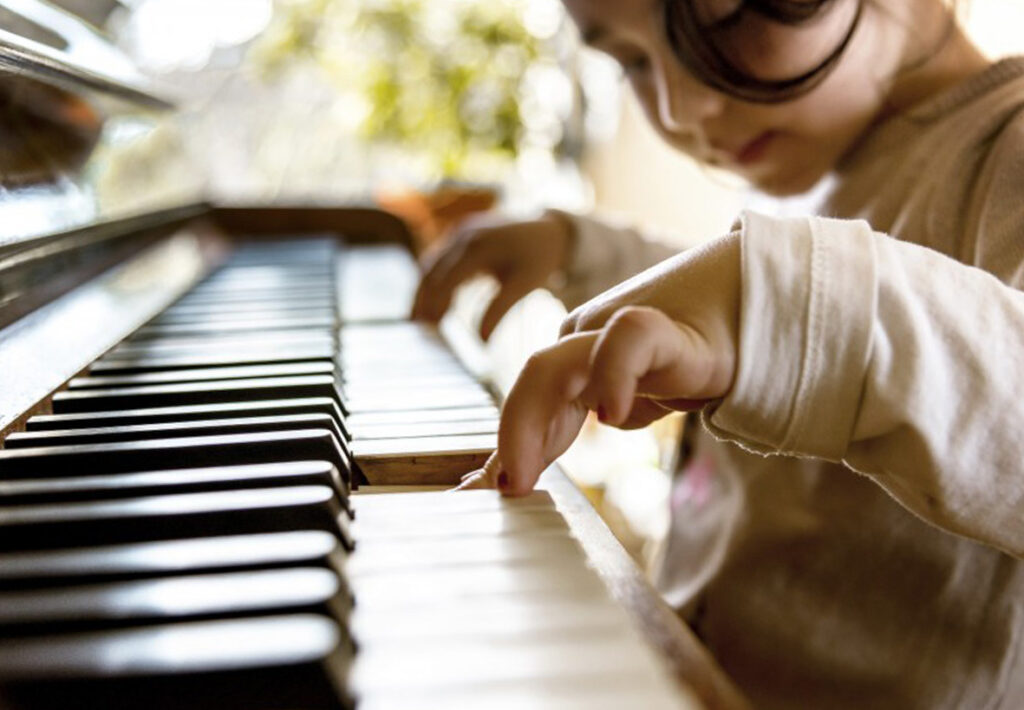
PIANO LESSONS
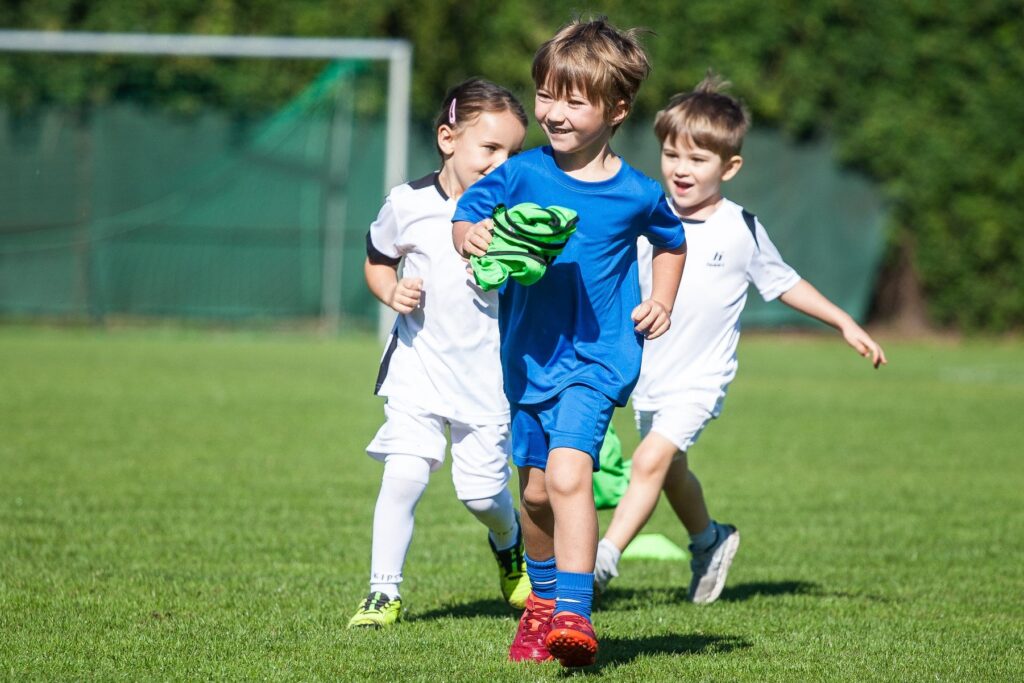
FOOTBALL
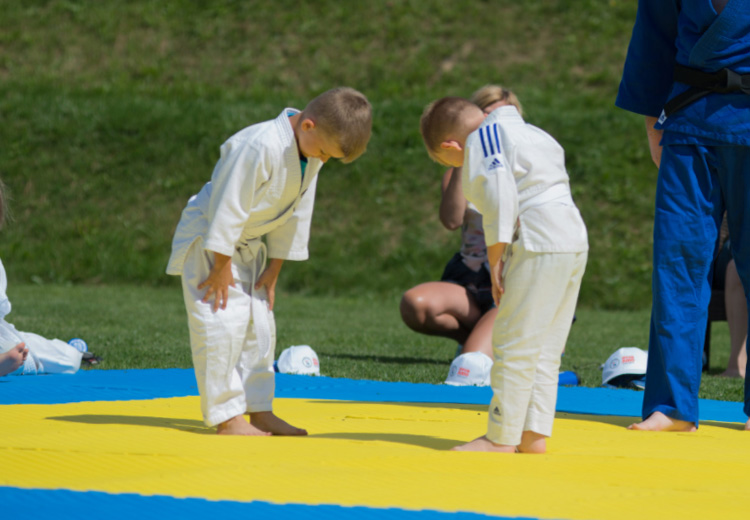
JUDO

TENNIS LESSONS


[POSIŁKI]
CATERING
The diet is provided by catering "Karmnik". We have been cooperating for 3 years.
Price list
1 CHILD
zł 1400
per month
- entry fee 690 zł
- umowa na rok 2023/2024
SING UP
STABLY
SIBLINGS
zł 1250
per month
- entry fee 690 zł
- price for the second child
SING UP
PRODUCTIVE
HALF A DAY
zł 1200
per month
- entry fee 690 zł
- 5-hour offer per day
SING UP
FLEXIBLE
RECRUITMENT rules
Zapisy do przedszkola trwają przez cały rok – w miarę dostępności miejsc. Pierwszeństwo w rekrutacji mają dzieci będące rodzeństwem naszych obecnych przedszkolaków.
Serdecznie zapraszamy na spotkanie zapoznawcze, podczas którego oprowadzimy Państwa po przedszkolu i szczegółowo przedstawimy naszą ofertę edukacyjną. Cenimy sobie bezpośredni kontakt z Rodzicami oraz możliwość poznania dziecka przed rozpoczęciem przygody z naszym przedszkolem. Zachęcamy do umówienia jednego lub kilku dni adaptacyjnych, podczas których Państwa dziecko będzie mogło poczuć atmosferę naszego przedszkola. Dzięki temu lepiej poznamy potrzeby dziecka, a także Państwa oczekiwania.
Część z Państwa podjęła już decyzję o zapisaniu dziecka do naszego przedszkola. Poniżej znajduje się elektroniczny formularz zgłoszeniowy, dostępny na platformie LiveKid – systemie, z którego korzystamy do codziennej komunikacji z rodzicami. Aby formularz został skutecznie przesłany, konieczne jest zarejestrowanie się lub zalogowanie na istniejące konto w systemie LiveKid.
